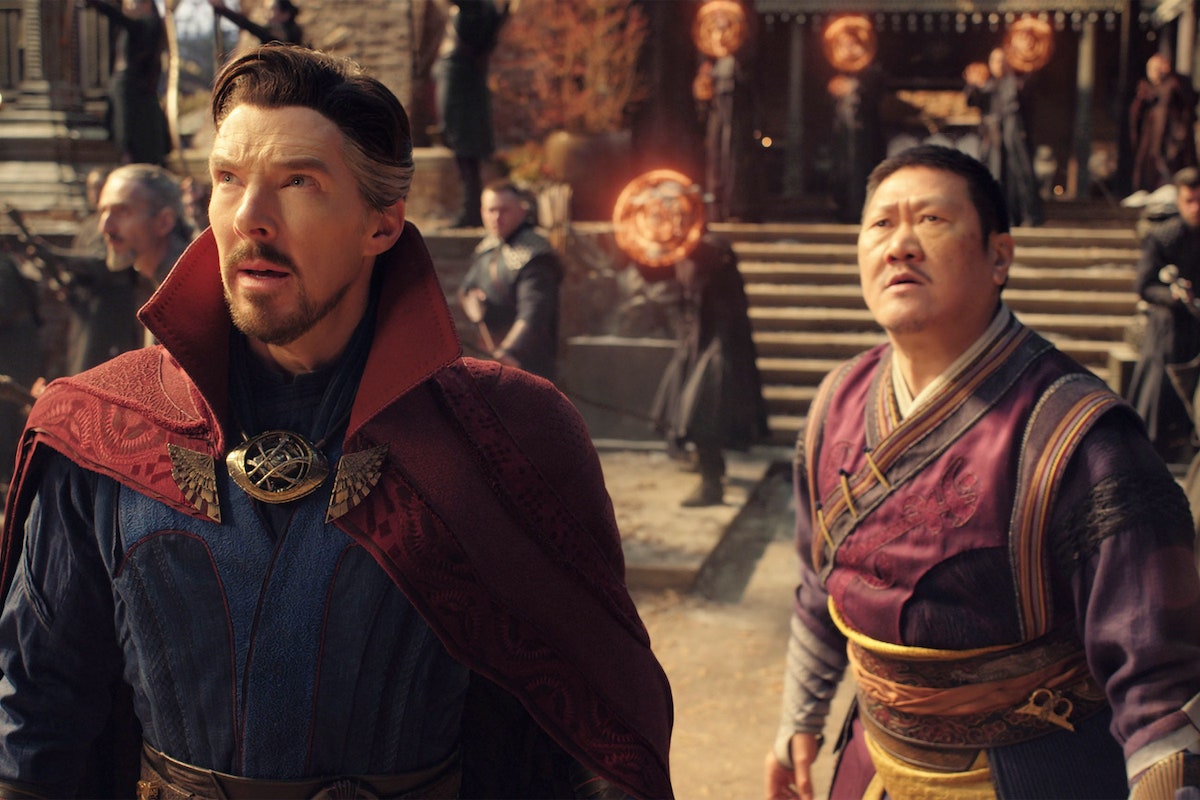I want to put before you three facts of importance for storytelling today, and for our self-understanding, which is what we want out of it. First, fantasy stories now dominate entertainment in Hollywood and beyond. Second, a new generation of Americans is being raised on Marvel superhero movies that are increasingly about therapy. Third, there is the obvious power and obscure character of digital technology in our lives and politics. In this unforeseen situation, we understandably no longer have confidence in our future, indeed, we have trouble figuring out what education and even morality require of us.
Our elites are also aware of the confusing changes in our times, so they keep trying to come up with images to make the new “reality” attractive in an attempt to win over hearts and minds, to become the authoritative interpreters of the world for young Americans. It’s not just when it comes to the news that elites have become obsessed with reducing reality to narratives, but above all in entertainment, because that’s the land of disposable income where people experience their freedom, choosing which comfortable fantasy to indulge, how to ignore disappointing realities, etc.
This is what the new Doctor Strange movie is truly about, another expensive production with incredible success in theaters worldwide, another billion dollars for the Disney corporation, the most successful studio in Hollywood history. Lest you should be deceived by the title, I hasten to say: It’s not a movie about the title character (played by Benedict Cumberbatch), whether because nobody cares about him or, if the fans actually like him, because as a straight white male he has to learn to be an “ally” of the disadvantaged and oppressed populations.
Accordingly, Doctor Strange in the Multiverse of Madness is about a girl called America Chavez (Progressives don’t understand subtlety, or even despise it) who is the long-lost daughter of two “moms” (this is happening in another universe, where people live among the flowers in nature). The doctor, you might say, as a man of science, owed it to himself, to the girl (played by Xochitl Gomez), and to the audience to ask about her father, but perhaps he didn’t want to get canceled and lose his job. Instead, he helps her escape the clutches of monsters who do the bidding of Wanda Maximoff/The Scarlet Witch (played by Elizabeth Olsen), a former Avenger heroine turned deranged woman who wants her (imaginary, as per the plot of WandaVision) children back and believes that only by exploiting America’s (!) unique powers can she achieve her goal to find those children in another universe and become the most overprotective mother imaginable by the power of moving from universe to universe to fix any problems the children might have. There is our antagonist—a helicopter mom with cosmic ambitions.
At any rate, this girl has the unique power to travel among universes in the multiverse while remaining outside it—there are no alternative versions of her. You see, she is the audience, the story is just a vehicle for her self-affirmation. At the end of a boring plot, instead of a resolution, she’s told to believe in herself and then does believe in herself, which gives her the power to do therapy. She shows Wanda that she’s scaring the (imaginary) children she cares about, which leads the Scarlet Witch to commit suicide for the greater good.
You could say that our storytelling has become so sophisticated that storytellers don’t care about stories anymore, or that they don’t believe there’s anything worth learning about human nature through storytelling. The plots and, accordingly, the characterizations are worse every year, and we’re reduced to barbaric spectacles. Instead, stories are used as vehicles for self-affirmation, for narcissism, and, possibly, although they wouldn’t do this, out of the goodness of their own hearts, for corporate advertising and woke propaganda. It is certainly a very sophisticated view of human affairs to believe that appealing to fantasy is the way to change political realities.
A strange taste for sentimentality and brutality is more and more widespread in our entertainment as it becomes debased. This sequel is itself more violent and uglier than its predecessor, which may have to do with swapping out director Scott Derrickson (The Exorcism of Emily Rose, Sinister) for the celebrated Sam Raimi (Darkman, Evil Dead), but they are both horror directors. Doctor Strange in the Multiverse of Madness is full of sentimental notions of therapy explaining away wicked and destructive deeds, so that people are released from moral judgment; otherwise, at least the victims of evil would seek justice. Worse, the antagonist makes almost a principle of sentimentalizing her love for her (imaginary) children and thus justifying and enacting the cruel destruction of everyone that gets in her way. Worst of all, the movie itself succeeds where its antagonist fails, raising sentimentality to a principle and narcissism to a kind of cosmic dignity. The pep talk Doctor Strange offers the heroine-girl, in order to get her to believe in herself, suggests that everything that happened to her before the moment she found the strength to confront her antagonist is therefore part of her story of self-discovery, in order to do away with feelings of doubt, guilt, or shame. Some members of the theater audience might find that the protagonist is not above criticism or very admirable, however.
But the therapeutic ethic and its abandonment of justice are not new; nor the appeal to the young on account of their self-absorption. The new development is the idea of the multiverse, now spreading in our entertainment. It flatters the democratic notion that life is a matter of chance: In another world, you could be rich or happy or successful; indeed, everything is possible and there are no limits. It seems to wipe away all moral and intellectual distinctions, which is the epitome of democracy, but at the price of freedom or morality, since choice is meaningless without necessity binding it, and thus this preference for fantasy over reality destroys the basis of democracy.
One way to think of it is to remember that famous expression of caution and charity: There, but for the grace of God, go I! All you have to do is take away the grace of God and now you have the multiverse, where anything can happen. Of course fantasy, the imagination of endless possibilities, comes with a taste for novelty or a rejection of what we know. It makes us strangers to ourselves and to each other, but that is why the imagination has to be under the control of Disney and, ultimately, of Progress, which will direct us in the ways we should go without our even knowing it, a substitute for divine law but an improvement on it, too, since it is less forbidding or demanding.
The makers of Doctor Strange in the Multiverse of Madness are not unaware that unleashing human possibilities might end up in chaos. Hence the opposition of two females of two different generations; hence the Progressive preference for the young, who can be educated or indoctrinated: Kids have no experience and little reason to doubt what they’re being told. At the end, the girl becomes another student in a school of wizards, no doubt ready to save the world by therapeutic fantasies. Then it becomes obvious that these plot changes are thin disguises for the most unmagical realities of our lives—status seeking, for example. Is the school of wizards anything but a vision of going to college among elite liberals? And the girl’s power of moving through the multiverse: Is that anything but hitting a button on a remote control and changing what TV fantasy one indulges, or clicking on another video on a streaming platform?
In certain ways, the movie is skeptical about this race-and-gender fantasy of Progress. After all, Doctor Strange is necessary to keep things going, at great sacrifice to himself, and with catastrophic consequences in the world around him. Indeed, apart from the silly sentimentality surrounding the teenage girl, things are mostly dark and threaten to turn nihilistic. In one sense, the therapeutic stakes for the various characters who talk about their feelings are petty; they’re just dealing with ordinary human suffering against a backdrop of cosmic catastrophes. In another sense, the hopelessness is palpable, the make-believe insufficient. What next for fantasy but nightmares?

